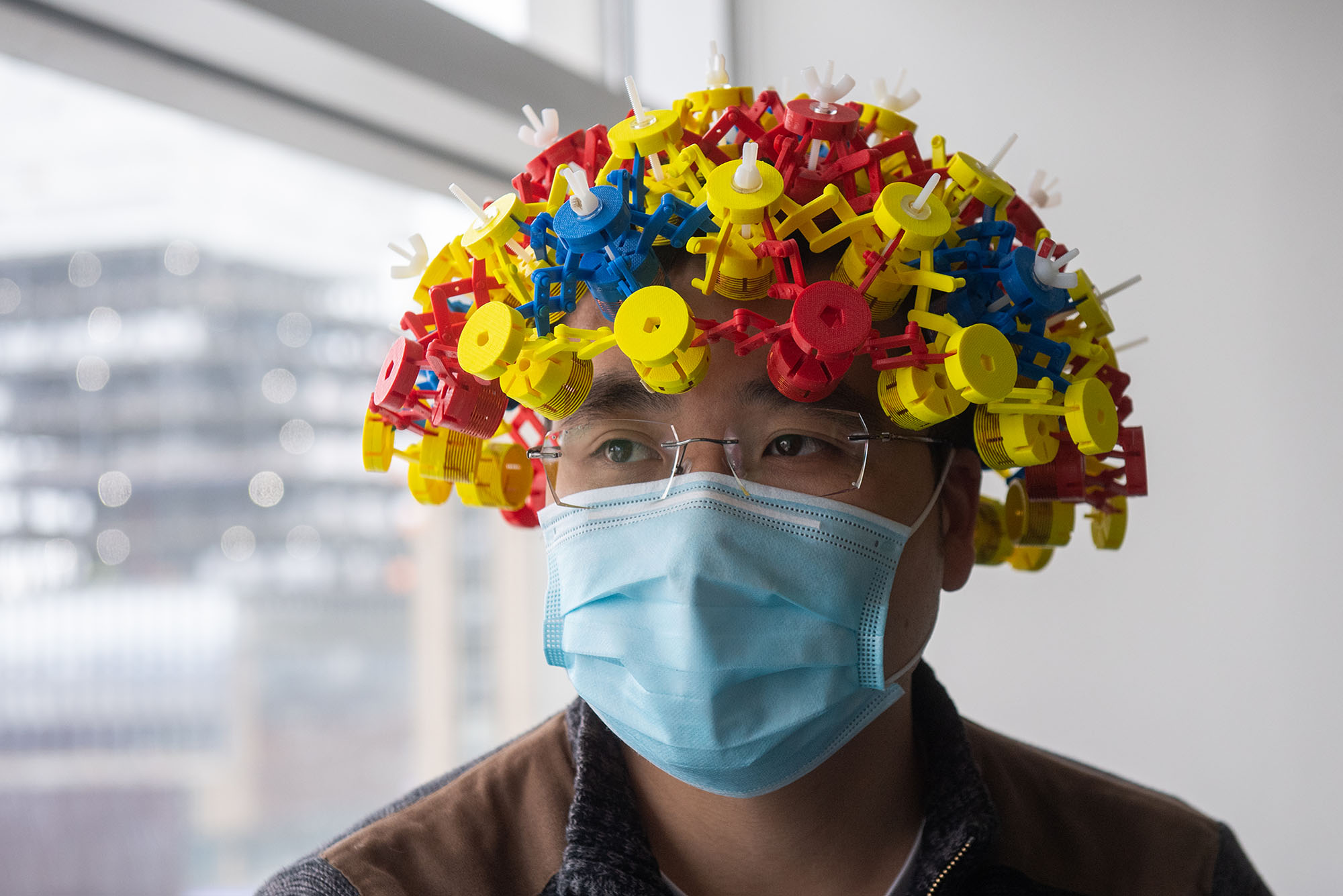Boston University's Xin Zhang has won the STAT Madness 2023 All-Star award for her work developing a metamaterial that makes magnetic resonance imaging (MRI) faster, safer, and more accessible to patients around the world. The College of Engineering professor of mechanical engineering was given the honor at the STAT Breakthrough Summit, a two-day conference that brings together some of the biomedical field's finest minds.
"If I told you the MRI revolution was coming, you probably wouldn't expect it would come dressed like this," Zhang said during the event, where she showed the metamaterial helmet her team developed for use during MRI scans. A combination of plastic and copper wire that Zhang compares to something found in Doc Brown's lab in Back to the Future, it can fit over a person's head to boost the quality of scan images.

The Breakthrough Summit was the culmination of health and science-focused media company STAT's annual March Madness-style tournament to find the best innovation in science and medicine for the year-complete with a public online bracket competition and separate All-Star vote at the conference. The online competition pits 64 entries-selected by STAT-from US schools and institutions against each other in weekly rounds of voting, with the highest-voted innovations advancing to the next round.
Zhang reached the quarterfinals of the online bracket and was chosen as an All-Star finalist to present at the summit, where she went up against entries from New York University and MD Anderson Cancer Center. Her metamaterial-a structure that can bend, absorb, or manipulate electromagnetic waves, sound waves, or radio waves-can be designed in different sizes and shapes, and placed at different orientations.
The research teams presented their work to a panel of judges that included STAT leadership and past winners and an audience of executives, industry leaders, investors, and experts in the field. Attendees then voted for their winner. According to STAT, Zhang's triumph makes her "the tournament's equivalent of a fan favorite."
"I was tremendously pleased and honored to present our research on boosting MRI at the STAT Breakthrough Summit," says Zhang. "It was humbling to see that the impact of our work is significant and meaningful to a wide range of people."
Zhang was selected to participate in STAT's bracket-style competition, which ended in March, alongside Alice White, an ENG professor and chair of mechanical engineering who codeveloped a miniature living heart replica-nicknamed miniPUMP-to help researchers better study heart disease and test new treatments. Although both lost out in the monthlong bracket, the All-Star nomination gave Zhang's innovative research a second shot at victory.
"Xin has been carrying out incredibly creative and pioneering work in the area of metamaterials," says Gloria Waters, BU vice president and associate provost for research. "Her work using novel metamaterials to increase the signal-to-noise ratio in MRI systems has the potential to create truly transformational diagnostic procedures and to potentially help millions of patients globally."
This story uses and updates reporting from an earlier The Brink story, published on April 25.






